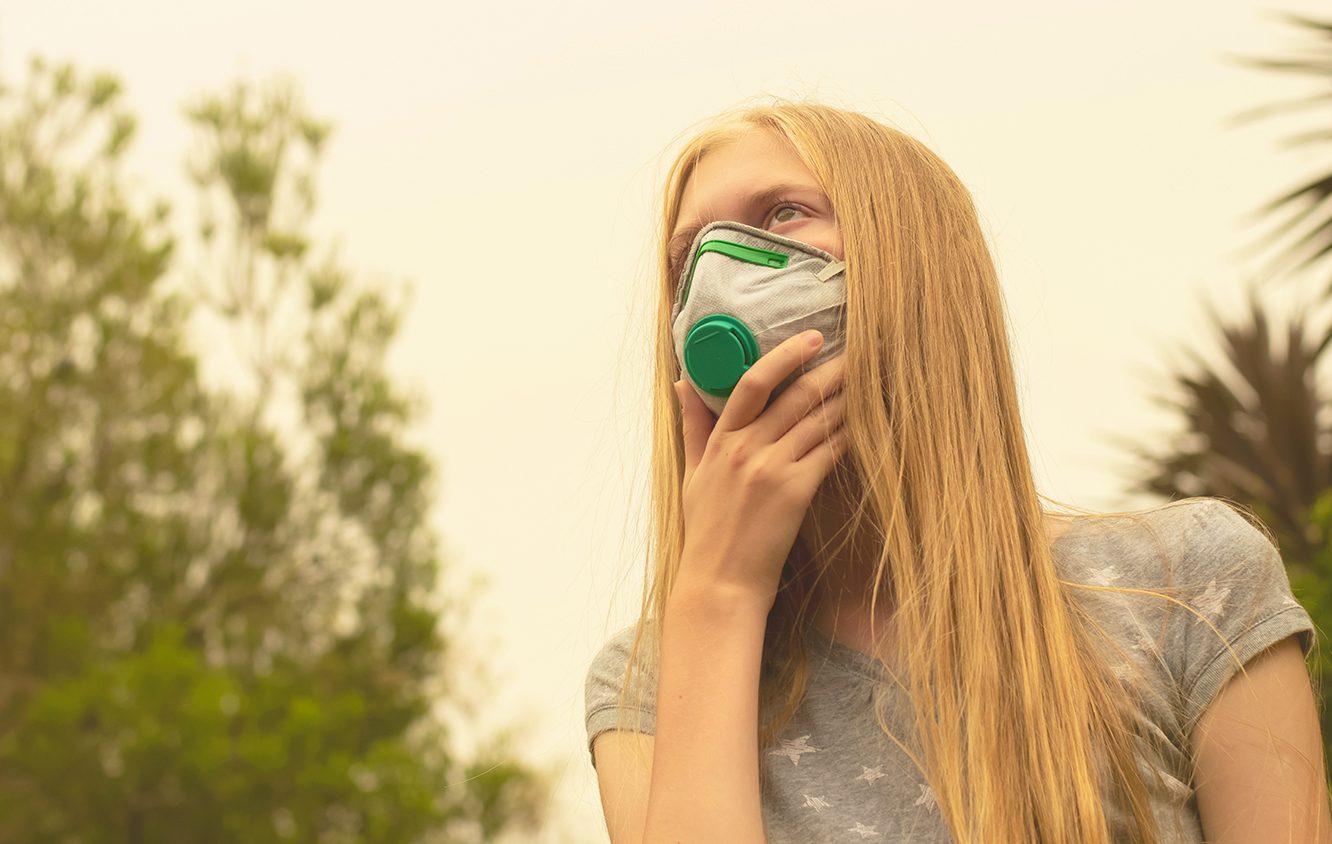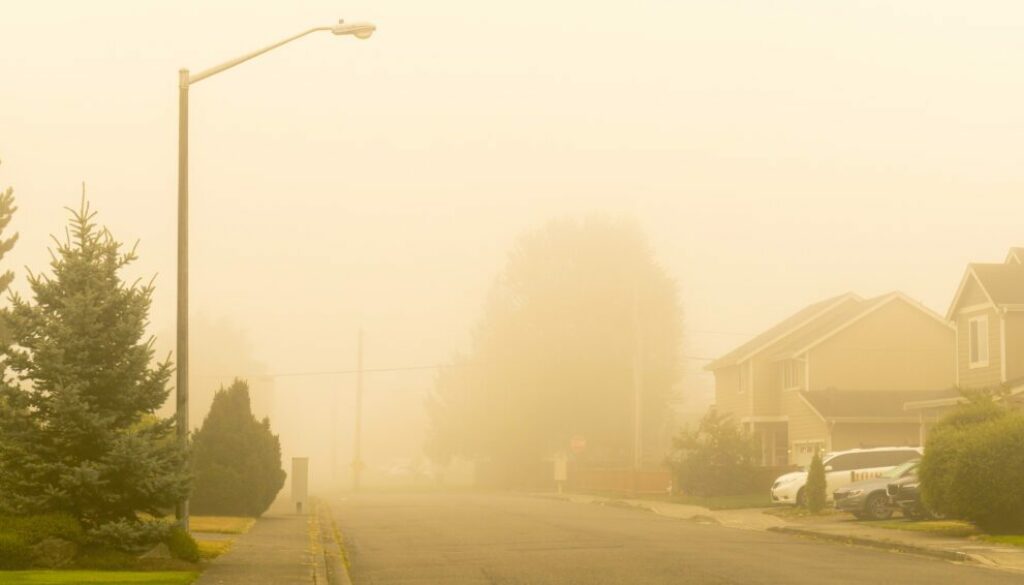Why you should monitor the air quality due to the Canadian wildfire
Have you noticed the smoky haze in the air the last few days in Myrtle Beach and the surrounding area? That haze is due to wildfires that have been raging in parts of Canada for the past few weeks. The smoke from these fires is traveling across parts of North America, including South Carolina, and for some, it could have negative health effects if the air quality continues to worsen.
“The biggest effect is going to be on your respiratory tract,” explained Gabriella Leary, PA with CMC Primary Care in Surfside. “Very similar to when we have high pollen counts in the spring. Smoke is both a lung and eye irritant, so you want to look out for itchy, watery eyes, and other symptoms like those that you’d experience with springtime allergies.”
According to the EPA, wildfire smoke is a complex mixture containing multiple components, but one aspect of the smoke, called particle pollution, is the primary health threat.
“Smoke consists of fine particles that can get deep in your lungs. As wildfires spread, consuming the forest and other less natural things, the smoke created can become more contaminated. Things like structures, asphalt shingles, plastics, and processed wood, make the smoke emissions more and more hazardous. The chemicals, pollution, and carbon monoxide from all of it are what can be so damaging to your lungs. That’s why it’s so important to monitor the air quality numbers when we find ourselves in conditions like we are in now.”
What do the air quality numbers mean?
The United States Environmental Protection Agency (EPA) monitors the air quality and the amount and types of pollutants in it. These are measured to determine an area’s air quality, which is reported using the EPA’s Air Quality Index (AQI).
- An AQI of 0 to 50 is considered “good” air quality, while 51 to 100 is considered “moderate” quality.
- Any value above 100 is considered to be unhealthy, especially for sensitive groups of people, such as those with lung diseases, older adults, children and teenagers, and people who are active outdoors.
- At levels between 151 and 300, everyone is recommended to either reduce or avoid intense activities outdoors, while values between 301 and 500 are considered “hazardous” and everyone should avoid all physical activity outdoors.
As of Friday, June 9, 2023, Horry County had a moderate AQI air rating of 92.
“What this means is that you may want to consider shortening your outdoor activity time to limit your exposure. The longer you’re exposed to smoke, there’s more of a chance for it to cause you problems. If levels continue to increase, you’ll want to greatly reduce the amount of time you’re outdoors as well as take preventative measures to keep the smoke out of your indoor areas, keeping doors and windows shut as much as possible,” Leary recommended.
How can wildfire smoke affect your health?
Beyond irritating your eyes and making you sneeze, the smoke in the air can cause other health issues and put some individuals at a more elevated risk.
“The hazy air can worsen and amplify your existing allergies, creating more inflammation and exacerbating your symptoms. Your skin may itch more. You may experience more coughing, wheezing, phlegm and have more frequent asthma attacks if you suffer from asthma,” describes Leary.
Leary explained that how your body reacts to the smoke depends on each individual’s baseline health status. “If you’re a healthy individual, you may have some minor irritating symptoms without having any long-term consequences. But if you’re pregnant or elderly, if you have heart disease or lung disease, or you already have an underlying lung condition or immune condition, you should try to limit that exposure as much as possible as the effects for you can be much more detrimental.”
In addition to limiting your outdoor exposure, there are other precautions you can take to reduce your exposure when you go outside.
“If you see that air quality levels are high and you need to go outside, wearing a mask is a great way to reduce your exposure,” encourages Leary. “The medical-grade N95 or KN95 masks that we all used during the COVID pandemic are the best because they prevent some of those particles from getting into your lungs. Cloth masks offer protection against viruses; however, they aren’t nearly as effective against smoke particles, but I would say they are better than nothing at all.”

CMC Primary Care: Helping you breathe easier
If you experience any changes in your breathing, Gabriella Leary, PA and CMC Primary Care recommend scheduling an appointment for a medical evaluation to be on the safe side, especially if your issues come on suddenly or won’t go away. They offer a variety of treatment options to keep you feeling good and ensure that you fully recover. They also offer chronic disease management services for asthma and other health conditions. CMC Primary Care also provides immunizations in-office to protect you from pneumonia and other contagious diseases that can cause respiratory issues. Call us today and breathe a little easier knowing you are in the right hands.

Gabriella Leary, PA
To set an appointment with Gabriella Leary, PA at CMC Primary Care – Surfside, call 843-347-8000 today!




